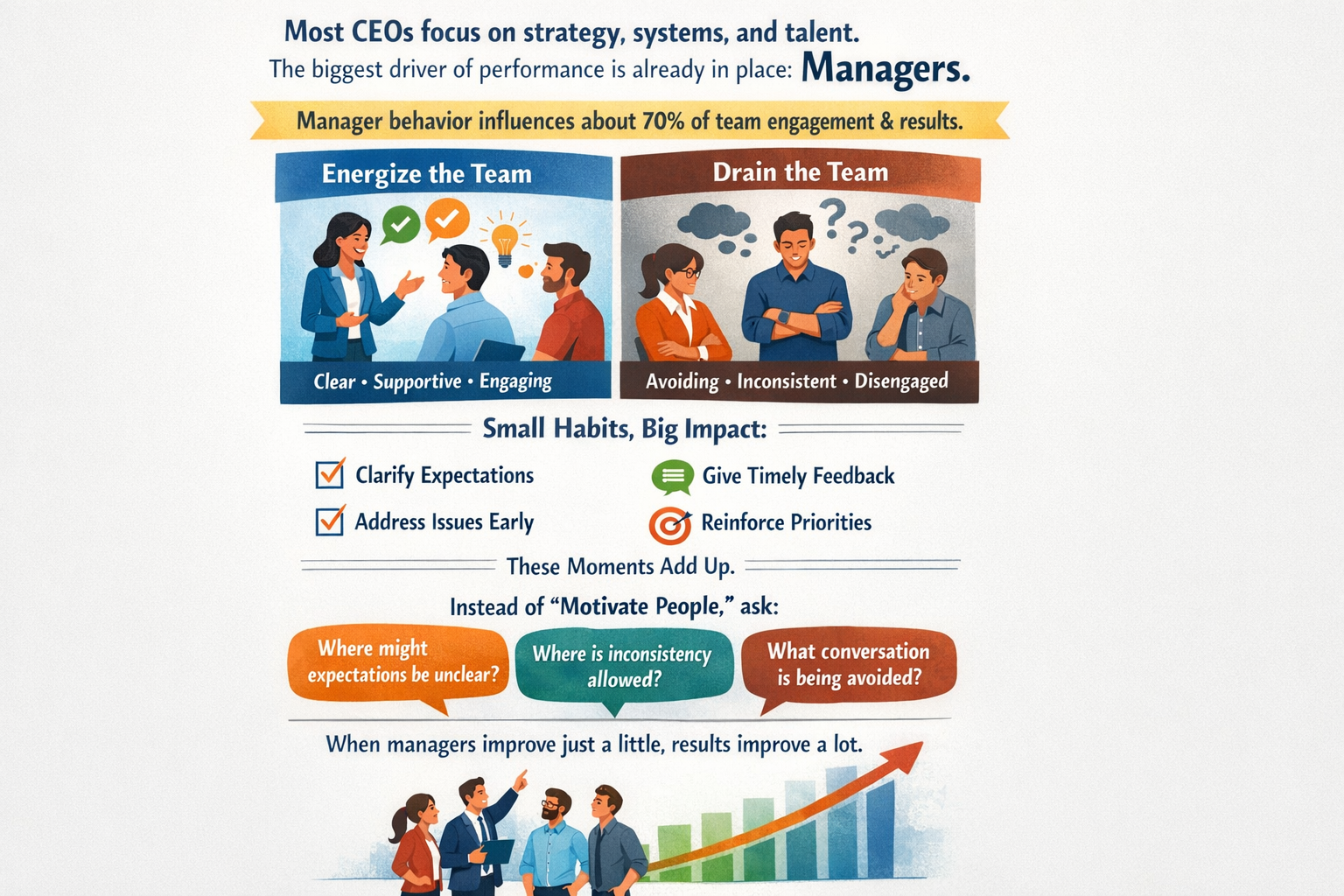5 Behaviors of Highly Engaged Employees
January 16, 2024

How we choose to live our lives greatly impacts our attitude, our relationships, and our success at work and in life. Our job satisfaction level impacts workplace productivity, physical and mental health, and personal relationships. Employees, themselves, control 30% of the factors that account for their outlook and productivity. Let’s look at 5 actions individuals can take to increase their own workplace engagement and satisfaction.
- Be aware of your own values and needs, apply for jobs at right-fit companies. If you value integrity and collaboration, look for an organization that is known for teamwork and good customer service. Avoid those with a bad reputation.
- Be honest about your strengths and weaknesses and explore right-fit jobs. Look for positions that leverage your strengths. Avoid situations in which your weaknesses are apt to cause frequent stumbling. Using your strengths for 80% of your workday yields very high engagement, satisfaction, and productivity.
- Build relationships with your colleagues. Get to know each other during breaks and lunch. Offer to help others with their projects and ask others for ideas that could enhance your work. A friendly collaborative workplace experience increases results and personal satisfaction.
- Embrace accountability. Monitor your progress towards workplace goals. When you encounter an obstacle or a setback research alternative approaches and ask others for their input. Appreciate those who praise your progress, point out shortfalls kindly, and support you in overcoming challenges.
- Be proactive. Speak up when you foresee a problem, you’re aware of customer dissatisfaction, or a colleague is down. Take the initiative to resolve small issues so they don’t turn into serious bottlenecks.
When individuals seek out right-fit jobs and take the initiative to add value at work, their intentional behaviors enhance their commitment and enrich others’ workplace experience. What can you do this week to strengthen employee engagement, job satisfaction, and organizational results?

Most communication problems don’t happen because people aren’t listening. They happen because leaders assume clarity instead of checking for it. “I think they get it” isn’t the same as “they really do.” When people don’t clearly understand what’s expected of them, they make their own assumptions to fill in the gaps. That’s when rework, missed deadlines, and frustration show up. Strong leaders ask better questions: What do you see as the top priority? What does success look like to you? What could get in the way? These don’t slow work down — they prevent costly resets later. Try a simple weekly habit: Think about one key conversation. What did I mean? What did they hear? Where was the gap? Small awareness leads to big gains. 👉 You’re invited to a Leadership Conversation with other leaders to discuss common leadership gaps and how they quietly influence results.

Most CEOs focus on strategy, systems, and talent. But the biggest driver of performance is already in place: managers. Manager behavior influences about 70% of team engagement and results. What happens in everyday conversations matters more than perks, pay, or policies. Managers either multiply energy or drain it. Clear, supportive managers raise performance. Avoiding, inconsistent managers quietly lower it. The good news? Small habits make a big difference: Clarifying expectations Giving timely feedback Addressing issues early Reinforcing priorities These moments add up. Instead of telling managers to “motivate people,” try asking: Where might expectations be unclear? Where is inconsistency allowed? What conversation is being avoided? When managers improve just a little, results improve a lot. 👉 Join our 60-minute Leadership Conversation to explore how everyday manager habits quietly shape engagement and results.
